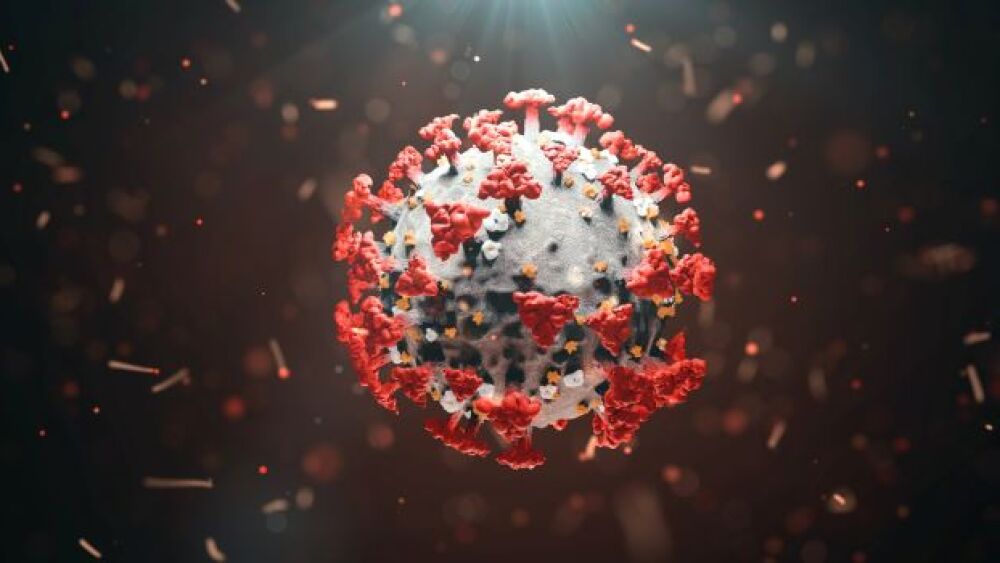As the COVID-19 pandemic hit a grim milestone, marking more U.S. deaths than were reported in the 1918–19 Spanish flu pandemic, research and breakthroughs continue.
As the COVID-19 pandemic hit a grim milestone, marking more U.S. deaths than were reported in the 1918
–19 Spanish flu pandemic, research and breakthroughs continue. Here’s a look.
Pfizer-BioNTech Vaccine Could Be Authorized for Children Under 12 Soon
Yesterday, Pfizer and BioNTech presented interim data from a Phase II/III study of their COVID-19 vaccine in children five to 11 years of age. The data had a favorable safety profile and “robust” antibody responses in the children who received two 10 microgram doses at 21 days apart. This was similar to a study at higher doses, 30 micrograms, in the 16- to 25-year-old group.
Mark McClellan, M.D., Ph.D., former commissioner of the U.S. Food and Drug Administration (FDA), told CNBC that the vaccine might be authorized for the younger age group within about a month.
McClellan, now a health policy expert with Duke University, said, “These findings are very promising, especially around the ability of a very small dose, leading to a very strong immune reaction. So it’s good that that’s panning out and action by the FDA in a month seems very feasible.”
Allergic Reactions to mRNA COVID-19 Vaccines Rare and Manageable
A Stanford University study investigated 22 reported allergic reactions to the first 38,895 doses of the Pfizer-BioNTech and Moderna mRNA vaccines. The shots were given to healthcare workers from December 18, 2020, to January 26, 2021, and came to less than six-hundredths of a percent. Out of the study population, 80.6% of allergic reactions were with the Pfizer-BioNTech shots, with 18.7% with the Moderna. The research was published in JAMA Network Open.
Women were at higher risk of allergic reactions, and symptoms included hives, swelling of the mouth, lips, tongue or throat, shortness of breath, wheezing or tightness in the chest. In some, there were blood pressure changes or loss of consciousness. Seventeen of the 22 reactions fell under the diagnostic definition for likely anaphylaxis. Three of the patients received epinephrine. All patients recovered. Of the 22 people with allergic reactions, 15 had a history of allergy to antibiotics, foods, other medications, or combinations of all of these. Five had a history of anaphylaxis, three of them to antibiotics, one to pork, and one to peanuts.
J&J’s Vaccine Data Confirms Strong and Long-Lasting Protection
Johnson & Johnson announced new data, both real-world evidence and Phase III data, supporting that its one-shot COVID-19 vaccine had strong and long-lasting protection. They also demonstrated that protection against COVID-19 increased with a booster shot. The safety profile was the same, generally well-tolerated when given as a booster.
Mathai Mammen, M.D., Ph.D., global head, Janssen Research and Development, J&J, stated, “Our single-shot vaccine generates strong immune responses and long-lasting immune memory. And, when a booster of the Johnson & Johnson COVID-19 vaccine is given, the strength of protection against COVID-19 further increases.”
The booster shot was 94% effective when given two months after the first dose in a U.S. study. The antibody levels were four to six times higher with the booster compared to the single shot alone. The study also found that a booster shot six months after the first shot might be even more protective, creating twelvefold higher antibody levels four weeks after the booster, regardless of age.
Former FDA Commissioner Gottlieb Thinks Public Has Lost Confidence in Public Health Officials
In a wide-ranging interview on CNBC’s “Squawk Box,” former FDA Commissioner Scott Gottlieb, M.D., promoting his book, Uncontrolled Spread, covered many COVID-19-related topics. He also slammed the U.S. Centers for Disease Control and Prevention (CDC), saying they were ill-prepared at the beginning of the pandemic and that its inconsistent messaging has hurt the public’s confidence in public health officials.
“I think coming out of this pandemic, a lot of people have lost confidence in the public health officials,” Gottlieb said. “They felt that guidance wasn’t well informed, it wasn’t well-articulated, it wasn’t distributed in a way that we could assimilate it into our lives.”
Despite that, he calls for more funding for the CDC to better equip the organization to handle crises better.
“I think going forward we’re not going to just be able to depend on countries voluntarily sharing information. We’re going to have to go in and have the capacity to collect it and to monitor for these things, and that means getting our foreign intelligence services much more engaged in the public health mission globally.”
Some of his statement is related to the World Health Organization (WHO) and other governments expressing skepticism that China has disclosed everything it knows about the origins of COVID-19. He also noted that the U.S. had been careful about bringing intelligence agencies into global public health issues because the CDC was concerned that “anyone wearing a white coat overseas would be perceived to be a spy.”
Gottlieb is a CNBC contributor and a member of the boards of Pfizer, Tempus, Aetion and Illumina. He also serves as co-chair of Norwegian Cruise Line Holdings’ and Royal Caribbean’s “Healthy Sail Panel.”





